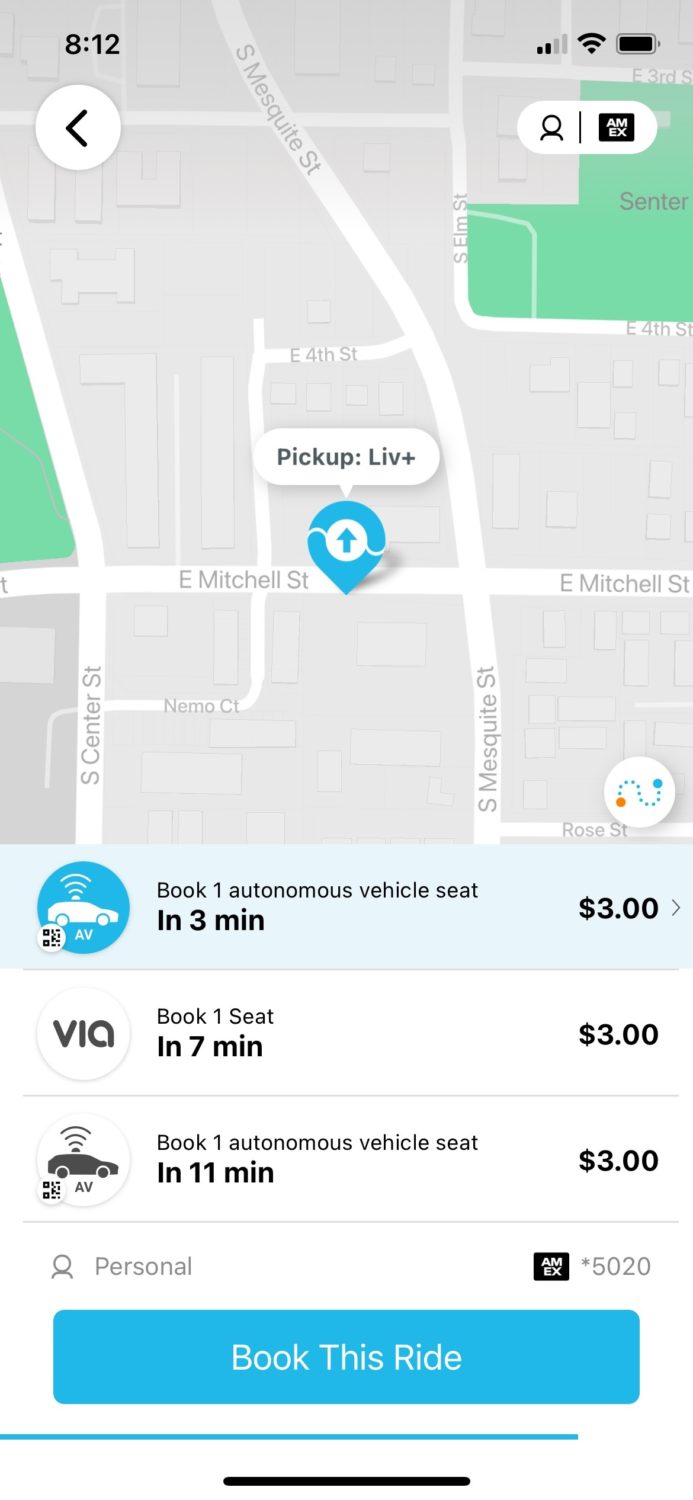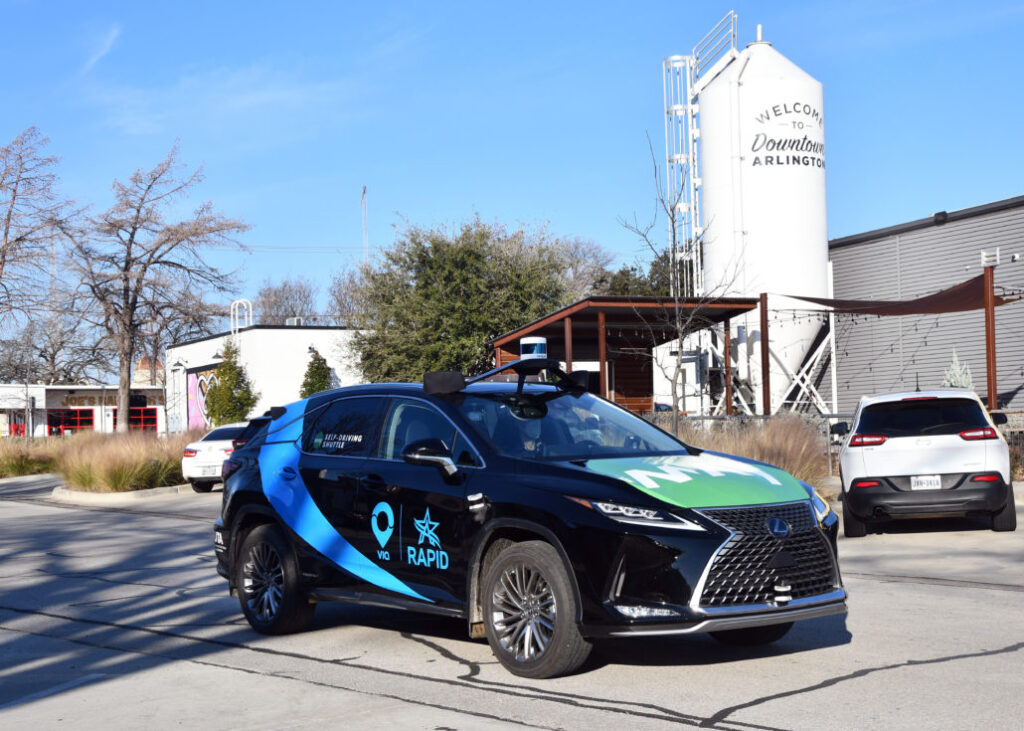Via Arlington customers in the Texan city can now select to be picked up in a self-driving vehicle for trips around downtown and The University of Texas at Arlington. The Arlington RAPID pilot program, available to riders through the Via app, is the first in the USA to integrate on-demand autonomous vehicles into an existing public transportation service.
A fleet of five self- driving vehicles, including a wheelchair-accessible vehicle, is available to book from 7am to 7pm, Monday through Friday, for destinations within the RAPID service area, which includes the Downtown Library, City Hall, UTA and numerous restaurants, offices, and businesses.
The City of Arlington is operating RAPID (Rideshare, Automation, and Payment Integration Demonstration) in partnership with Via, a leader in TransitTech, May Mobility, a leader in autonomous technology and fleet services, and UT Arlington through a grant provided by the Federal Transit Administration (FTA).
The goal of the Arlington RAPID project is to provide a blueprint for combining on-demand rideshare and autonomous technologies to develop effective, efficient, safe and accessible transportation for all riders. In addition to improving public transportation options in Arlington, lessons learned from Arlington RAPID will be shared widely to help other communities throughout the nation seeking to combine rideshare and autonomous technologies.
“Arlington has developed a reputation around the country as one of the most innovative cities exploring technology-based mobility solutions and the testing of autonomous vehicles,” said Arlington Mayor Jeff Williams. “We’re excited to take the next step in this process with our partners May Mobility, Via and UT Arlington, as we explore the latest self-driving vehicle technology on our roads in the Downtown area.”
Via’s technology will power booking, routing, passenger and vehicle assignment and identification, customer experience and fleet management, while May Mobility will share its expertise in AV technology, to deliver a highly integrated, autonomous, shared-ride system.
“The City of Arlington continues to be at the forefront of transit innovation, building on the launch of one of the nation’s first microtransit systems with a self-driving vehicle platform that is fully integrated into the public transit network,” said Daniel Ramot, co-founder and CEO of Via. “We are proud to expand Via’s long-term relationship with the city as we offer residents an exciting new way to use public transportation.”
May Mobility is providing the fleet of five autonomous vehicles, which comprises four hybrid electric Lexus RX 450h vehicles that can carry up to three passengers and one Polaris GEM fully electric vehicle that can carry one wheelchair passenger. While the vehicles are self-driving, a trained fleet attendant will be in the driver’s seat at all times to ensure safe operations and to provide customer service for riders.
“The Arlington RAPID program is important for May Mobility as we evolve our service with a more flexible and convenient on-demand option powered by Via on our Lexus RX 450h vehicles,” said Edwin Olson, co-founder and CEO of May Mobility. “We are proud to partner with the City of Arlington, who is leading the way in new mobility solutions. This opportunity will play a crucial role in advancing our technology development and our overall mission to transform cities with safe, clean and accessible self-driving shuttles.”
Arlington has already managed two successful autonomous vehicle deployments: The Milo off-street pilot program with EasyMile was conducted from August 2017 to August 2018 and the on-street pilot program with drive.ai vehicles was conducted from October 2018 to May 2019.
In 2020, the City of Arlington was awarded a US$1.7m grant through the Federal Transit Administration’s Integrated Mobility Innovation Program to integrate autonomous vehicles into the Via on-demand rideshare service. Arlington RAPID was one of 25 projects in the country to receive funding under the program, which supports projects that use innovative technologies and processes to improve access to public transportation, increase public transportation efficiency, and enhance the overall rider experience.



